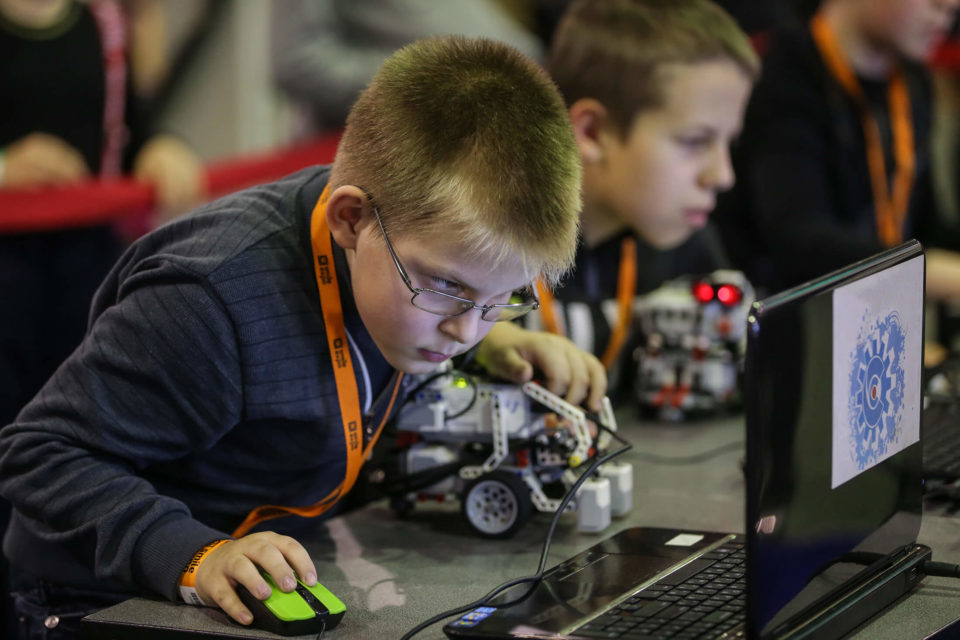In 2021, the Ministry of Education will begin testing educational modules “Artificial Intelligence” in schools. And by 2024, it will be studied in half of all general educational organizations, and within the framework of the usual school curriculum. This is stated in the draft roadmap for the development of artificial intelligence (AI) in Russia, RIA Novosti reports.
Can schoolchildren master such a complex topic? What programming languages should children learn? And what specifically teach them? About this, “WG” asked experts – leading universities (project participants 5-100).
Konstantin Vorontsov, Head of the Machine Intelligence Laboratory, MIPT:
First you need to decide what kind of subject is it. The development of Artificial Intelligence (AI) is a narrowly professional discipline that requires training in mathematics and computer science at the level of higher education, and it certainly does not belong in high school. The use of AI in different areas is a completely different matter. This is an engineering discipline in which it is possible to assemble solutions of practical problems from ready-made “cubes”. Most of all, it looks like circles on robotics, of which there are already quite a lot. Pupils could well participate in competitions on data analysis and learn how data is collected in the modern world, what tasks exist, open data, how they are used for automation. Today, data analysis can serve as a “point of entry” in almost any profession, allowing you to get to the bottom of the problems being solved there, sitting at home or in class at his laptop. Such a subject teaches the basics of an interdisciplinary approach, systems thinking and project activities. Quite a serious circle for motivated children who want to master the modern profession in demand. Should I introduce such an AI subject for everyone? Sure no. What really should be done is to seriously update the existing school computer science course. There are too many abstract, outdated, impractical things, and not everyone needs a strong roll in programming. You can make “Programming” and “AI” two separate subjects in physics classes. And in the general course of computer science include more practical examples of how data and information appear, and how they work with them in various fields of human activity, including using AI.
Andrey Sozykin, Vice-Rector for the Development of Educational Activities of the Ural Federal University (UrFU, Yekaterinburg):
– In our experience of projects of the Ural Federal University for schoolchildren, young children are quite capable of creating artificial intelligence systems using ready-made machine learning libraries. For example, our participants created applications with facial recognition, analyzing social networks that optimize the energy consumption of industrial equipment based on data analysis.
To organize training in artificial intelligence, you must first include in the school curriculum the study of programming languages in which artificial intelligence systems are developed. Now the most popular language for this purpose is Python. This is a fairly simple language, students quickly learn it. The next stage is the study of ready-made machine learning libraries and their application for typical tasks of artificial intelligence, primarily computer vision and natural language processing.
The inclusion of artificial intelligence in the school curriculum will increase interest in other subjects. Students will understand that you can recommend an interesting film using mathematical operations with matrices. Because of this, mathematics ceases to be something abstract. One of the popular methods of artificial intelligence – deep neural networks – uses the analogy with neurons inside the brain. To better understand how they work, you need to study biology
Marina Bolsunovskaya, head of the laboratory “Industrial systems for streaming data processing” of the Center NTI SPbPU:
Artificial intelligence opens up fundamentally new opportunities in all areas of activity. Students will be able to get acquainted with important examples of the use of artificial intelligence systems, learn how AI can free a person from monotonous work, help in making decisions, automate dangerous types of work and maintain communication between people. A very important area of education in schools is also the acquisition of knowledge in the field of protecting the interests of Russian citizens in the application of artificial intelligence, creating legislative and ethical standards for the development and interaction with systems with artificial intelligence, and ensuring the safety of the use of artificial intelligence technologies.
Our laboratory already has experience in organizing lectures and developing teaching materials for schoolchildren on artificial intelligence systems (Sirius, Baltic Scientific and Engineering Competition, Summer Schools, developing teaching materials for WorldSkills, Polytechnic on the Water). The main thing is that learning new technologies should be a “fascinating journey” into the world of science.
Source: rg.ru

